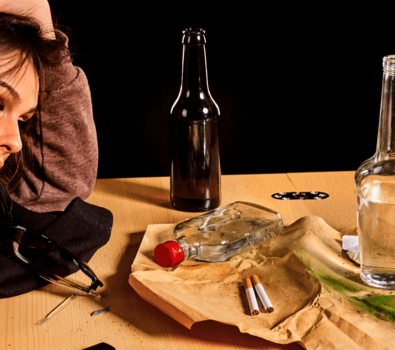When there is parental drug abuse in the home, the children will have problems. Parents who do not provide good role models, do not fulfill their parental role. Parents are looked up to by their children – what young children observe they come to see as being the way of life.
Parental drug abuse can have an impact on children before they are born – parental drug use can affect child development from conception, particularly in the first three months of the pregnancy when the fetus is most actively developing.
Fetal alcohol syndrome can deform and retard an infant, drug abuse produces low birth weight babies – some infants when born suffer from drug withdrawal. Drug abuse can lead to lack of bonding between mother and baby. This can lead to attachment difficulties for the child in all future relationships.
Deprivation, depression, malnutrition and emotional distress occur when the attention of the mother is focused more upon drug abuse than on caring for her baby. Parental drug abuse can isolate the family from the community and give children the stigma of being from a “bad” family.

With parental drug abuse there is tension and often fighting between the parents. Between ducking for cover and trying to form meaningful attachment to its parents, a child can be emotionally torn apart. Scientific evidence suggests that when a child is under stress, survival needs are prioritized. Fully integrated cognitive and emotional development does not occur. Abuse from parents can be physical and emotional.
An example of fragmented development of the psyche occurs with schizophrenia. R D Laing provides many case studies in his books which would suggest that it is enforced relationship with dysfunctional, powerful others that is a prime cause of mental distress and disorder in those who have to live with them.
When children have to cope with the fallout from parental drug abuse, it takes away their childhood. Living in fear tends to make children streetwise and wary – but emotionally vulnerable. Children may take sides with and feel protective of a mother – while experiencing intense guilt and shame at their lack of power to deal with the situation.
If a mother is abusing drugs, children will feel most insecure. The foundations for trust and love are based on our early experience of “mother”.
When the adults in the home abuse drugs it reduces the available money for necessities of life. Drug abuse has a negative effect at both a financial and emotional level. Children need the help and support of parents to meet their developmental milestones.
When parents are not responsive to important issues that the child is facing, children may become over dependent on other children to fill their emotional need for attachment. They will find that it is easy to attach themselves to gangs and groups who also feel alienated from normal relationships in the community.
Parents who are immersed in drug culture have an uncertain, anxious lifestyle, sometimes actual violence, illness, criminal conviction impacts upon the children.

Parents intent on raising “good” children will tend to ostracize and keep away from families with drug abuse problems.
Children can feel anger, resentment, envy and shame as a result of their parents not being like other happy family people.
Children distressed by parental drug abuse are lucky if they can confide in a relative or a grown up friend, as this helps them to gain a wider and hopefully more positive experience. Unless parents accept responsibility to stop drug abuse – intervention is justified.



